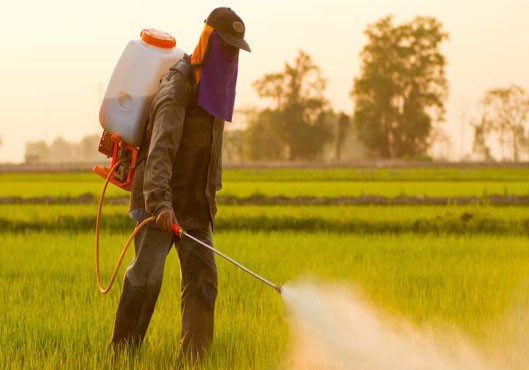Civil society organisations and citizens across Africa are calling upon their governments to issue an immediate ban on all use of glyphosate and glyphosate-based herbicides (GBHs).

Launched by the Alliance for Food Sovereignty in Africa (AFSA) and the African Centre for Biodiversity (ACB), the #BanGlyphosateAfrica campaign has been endorsed by African organisations representing millions of African citizens. Governments across the continent are being inundated with messages, letters and petitions demanding that they protect their citizens with an immediate ban.
Globally, glyphosate and GBHs have contaminated all spheres of our environment and food systems, kicking off one of the world’s biggest health crises. Chronic diseases have increased in tandem with GBH use globally, as recent court cases in the USA have shown.
AFSA Coordinator Dr Million Belay, explains: “Countries around the world are rushing to put bans in place, yet African governments are silent. This is terrifying, as Roundup is used extensively by African farmers and farm workers as a weed killer, and residues can be found in the food we eat.”
The World Health Organisation’s International Agency for Research on Cancer (IARC) announced in 2015 that “both pure glyphosate and glyphosate formulations are probably carcinogenic to humans”.
Independent research shows that glyphosate and GBHs can cause numerous chronic illnesses, and damage cellular DNA – leading to cancer. The direct and indirect exposure to GHBs appear to place African farmers, consumers and workers at extreme risk of disease. Sample testing of mothers’ breast milk has revealed the presence of GBHs.
Despite the global wave of GBH bans, global production capacity has increased to twice that of demand (partially due to China’s massive output). This makes Africa even more attractive as a market, which fuels the push to increase the use of GBHs and glyphosate-tolerant genetically modified (GM) crops.
It is documented that 38 weeds are resistant to glyphosate, which will only result in more glyphosate being used. This contradicts the claim that converting to herbicide-tolerant GM crops reduces the quantity of herbicide needed.
ACB director Mariam Mayet says: “Without a ban, manufacturers will keep dumping these toxic chemicals in African countries, where they are still permitted. Africa doesn’t need these deadly poisons to deal with weeds; there are many viable alternatives that avoid the risk of disease and damage caused by GBHs.”
The myth that pesticides are needed to feed the world has been refuted. The United Nations Special Rapporteur on the right to food, Hilal Elver, has emphasised that “without or with minimal use of toxic chemicals, it is possible to produce healthier, nutrient-rich food, with higher yields in the longer term, without polluting and exhausting environmental resources”.
African countries can avoid the “agro-chemical lock in” by promoting agroecological and other non-chemical farming alternatives in agriculture, and adopting alternative weed control agents for urban areas.
The continental campaign thus calls on African governments to:
issue an immediate ban on all use of glyphosate and GBHs;
take adequate measures to ensure other more toxic chemicals do not replace glyphosate; and
initiate a shift from chemical, input-intensive agriculture to agroecological farming systems.
In a related campaign in South Africa, on August 28, Women on Farms Project (WFP) marched to Parliament calling for a ban of 67 pesticides that have been found to be hazardous and thus banned in Europe, including Roundup.
WFP has given the government until 30 September to respond to their call for a ban. In the interim, they are also calling for the enforcement of regulations regarding pesticide use. Warnings should be issued before a pesticide is used and farm workers need to be provided with protective clothing when working in fields after pesticide use or close to where pesticide is being applied.
The campaign is said to be supported by Oxfam, with close on 30,000 Oxfam Germany supporters having signed on to support the call for a ban of the 67 pesticides.
